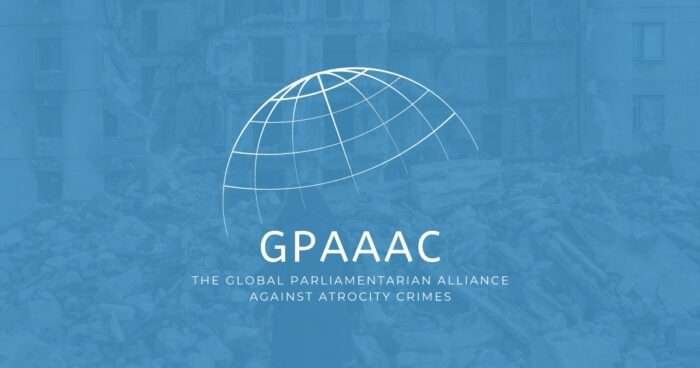By Eleonora Mongelli
November 24, 2022
By Kyle Matthews and Marie Lamensch
Source: Montreal Institute for Genocide and Human Rights Studies
This op-ed written by Eleonora Mongelli is part of MIGS’ Global Parliamentary Alliance Against Atrocity Crimes (GPAAAC) initiative supported by the Konrad Adenauer Stiftung Canada. Eleonora Mongelli is the Vice President of the Italian Federation for Human Rights.
Since the Russian war of aggression against Ukraine began, many countries around the world have imposed a flood of sanctions on Russian politicians, government officials, companies, banks, and private individuals, under various sanction regimes and following different criteria. In addition, over 1,000 foreign companies have suspended operations in Russia. These sanctions have been led by the U.S., E.U and U.K., working jointly with the goal of limiting Russia’s ability to continue its war against Ukraine and punishing those who finance it. Such scenario represents an unprecedented level in the use of sanctions: many countries, including the EU, for the first time targeted members of Putin’s inner circle, because of their direct or un-direct relation to the war crimes in Ukraine.
We are witnessing a growing awareness, especially following the adoption in many countries of the Magnitsky-style sanctions (sanctions that target individuals and entities responsible for or involved in serious human rights violations and grand corruption crimes), that sanctions can actually provide an efficacious tool for promoting global justice and accountability. More and more human rights experts and activists all over the world agree that sanctions, if used in a well targeted manner, can significantly strengthen the toolbox for human rights policies and help deliver justice and accountability, also when it comes to the long list of international crimes committed in Ukraine. If criminal justice is crucial to persecute the perpetrators of the crimes and secure justice for the victims, sanctions are the rapid and effective response of the international community to those crimes, if implemented with determination and coordination. In the case of Ukraine, where the large number of documented international crimes revealed the need for activating all possible mechanisms, the restrictive measures against Russia, which involve both economic and individual sanctions, have been adopted in parallel with the activation of international and domestic criminal justice mechanisms: the International Criminal Court commenced an investigation on the Ukrainian territory for war crimes, crimes against humanity and genocide, and a number of countries opened investigations under the universal jurisdiction. In this unusual framework for approaching justice, sanctions play a critical role.
The measures – such as financial sanctions, import and export restrictions, restrictions on banking, travel bans and asset freezes have been imposed in order to affect in a short- and medium-term Russian war machine in its operation against Ukraine and to increase the cost of the invasion.
ARE SANCTIONS WORKING?
The answer is yes. Sanctioning countries agree that the impact of the restrictive measures against Russia is real and that sanctions are weakening Russia’s ability to fund the war.


